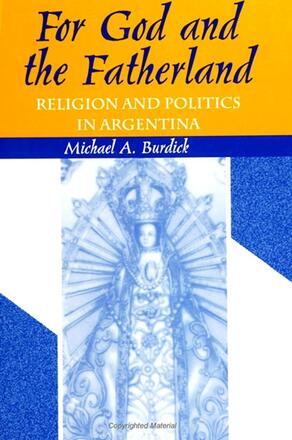
For God and Fatherland
Religion and Politics in Argentina
Alternative formats available from:
This analysis of the crises in church-state relations in Argentina over the last 100 years shows that the constitutionally-established Catholic Church was progressively disenfranchised by various governments and responded by struggling to maintain the institution’s historic rights and privileges and to speak as the moral conscience of Argentina
Description
This study of Argentine Catholicism offers an important perspective to the country's turbulent political history. Church-state relations show a number of crisis points whereby the constitutionally-established Catholic Church underwent progressive disenfranchisement by various governments. In response, church elites struggled to maintain the institution's historic rights and privileges and to speak as the moral conscience of the nation.
Three critical periods in church-state relations are examined: the anticlerical period of the 1880s; the rise of Perónism in the 1940s; and the series of events beginning with the upsurge of the revolutionary left in the 1960s. These events shaped the Argentine Church, while at the same time Catholicism, often imbued with a fervent nationalism, provided many groups competing for power the myths, symbols, and language necessary to articulate a vision for a new Argentina
Michael A. Burdick is Research Affiliate at the Center for the Study of Religion at the University of California, Santa Barbara.
Reviews
"Burdick provides (at long last) a basic study of the twentieth-century Argentine Catholic Church. It will become the standard study not simply because there is little competition, but primarily because Burdick's study covers the necessary material so competently and carefully, and places it in the larger contexts of Argentine history and twentieth-century Catholicism. While this book could remain primarily descriptive/historical, Burdick goes beyond description to discuss theoretical/analytical issues relevant to the Argentine case and to religion and politics in Latin America more generally. He stresses the distinctiveness of the Argentine Church as well as its parallels to Catholicism elsewhere in Latin America. " — Anna L. Peterson, University of Florida